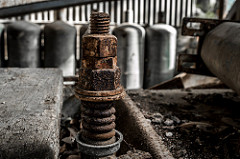
A little over a month ago, when Divi’s Labs was placed on US Food and Drug Administration’s Import Alert List, PharmaCompass had raised the question whether the company had indeed refused an FDA inspection, even though it was apparent that the company had been inspected. Media reports said the firm had been inspected by the US FDA from November 29 to December 6, 2016.
Our March 29 report reviewed the Form 483 issued to Divi’s Unit II, in Visakhapatnam (India). This week, FDA posted the warning letter issued to Divi’s Laboratories (Unit II) on its website, which brings to fore several problems in addition to those highlighted by us last month. For instance, the warning letter highlights that access to records FDA investigators wanted to inspect had indeed been restricted.
Files provided by Divi’s weren’t original records
The warning letter states: “Our investigators requested records of your audit trail data from all chromatographic systems used to test drugs for the US market at your facility. The files you ultimately provided (in the form of Excel spreadsheets rather than direct exports from your chromatographic software) were not the original records or true copies, and showed signs of manipulation.”
The FDA investigators explained to Divi’s at least twice during the inspection, that the data provided was not representative of the actual audit trail data from the chromatographic systems, and requested they be provided original, unmodified records.
Divi’s held firm and maintained that they could not provide the requested audit trail records. Even after the investigators explained that failure to provide the requested records would be documented as a refusal, Divi’s acknowledged the refusal.
Requested records shredded, and in trash
The warning letter mentions other instances where some, but not all, of the records requested by the FDA investigator were provided. In addition to providing only a subset of the requested records, FDA investigators also found “at least one of the requested records were shredded in the trash”.
The warning letter highlights the questionable practices which PharmaCompass had shared previously that resulted in the FDA placing Divi’s Unit II in Visakhapatnam on its import alert list for “refusing FDA foreign establishment inspection” as also for “not meeting drug GMPs” (good manufacturing practices).
FDA raises concerns over Teva’s process capability
Divi’s inspection revealed that FDA’s focus is shifting beyond audit trails and the warning letter issued to Teva’s API manufacturing facility in Hangzhou (China) highlights concerns over process capability and the resulting impact on product quality, but has no mention of audit trails.
During the inspection in China, FDA investigators found that approximately 10 percent of batches of a certain API produced at the facility, from December 2014 to September 2016, failed to meet a specification for impurity levels. During this period, an additional 10 percent of batches yielded out-of-trend (OOT) results.
Teva fails to implement effective CAPA
The warning letter was issued after Teva failed to implement effective corrective and preventive actions (CAPA) to correct the process design and control flaws that led to excessive formation of the impurity during processing.
Even after Teva completed its most recent process qualification study (in March 2017), additional lots failed after commercial manufacture was resumed.
“Recurrence of product quality failures following the completion of your investigation and process re-qualification indicate that your root cause analysis and CAPA were ineffective,” the warning letter states.
Compliance concerns at Lonza USA
Non-compliance concerns have not been limited to India and China. For instance, Lonza received a warning letter which raised quality issues at its Walkersville (Maryland) facility in the US. A press release issued by Lonza said the warning letter relates to “technical issues involving for example validation and aseptic process simulations.”
According to Lonza’s website, Lonza Walkersville is the headquarters and the largest manufacturer of Lonza Bioscience, which serves as a leading provider of biology-based solutions which provides approximately 3,000 products and services to the biotechnology, clinical, pharmaceutical and research communities.
France uncovers GMP problems at Nova DFL’s Rio facility
While the FDA was busy issuing warning letters, inspectors from France’s regulatory agency ANSM uncovered GMP problems at the facility of Nova DFL Industrie E Commercio in Rio de Janeiro during an inspection conducted in February this year.
Among the critical observations highlighted were the “high” risks of microbial contamination, dangers of cross-contamination and unsuitable behavior by operators who failed to sterilize a tool, used to grab vials, after it had fallen on the floor.
Our view
While most recent concerns about non-compliant practices have had regulators highlight concerns over data-integrity, we can clearly see a shift in what investigators are looking for during inspections.
The focus of inspections is increasingly on manufacturing practices and their robustness to deliver a quality product.
The PharmaCompass Newsletter – Sign Up, Stay Ahead
Feedback, help us to improve. Click here
Image Credit : Three Nuts by darkday is licensed under CC BY 2.0
“ The article is based on the information available in public and which the author believes to be true. The author is not disseminating any information, which the author believes or knows, is confidential or in conflict with the privacy of any person. The views expressed or information supplied through this article is mere opinion and observation of the author. The author does not intend to defame, insult or, cause loss or damage to anyone, in any manner, through this article.”





